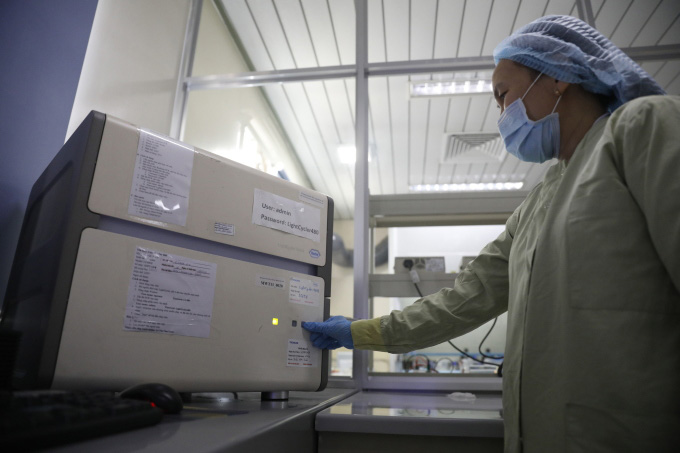The infectious disease surveillance system in Ho Chi Minh City has identified a concerning trend, reporting that 12 out of 16 Covid patients hospitalized in December were infected with the JN.1 variant, with one case involving JN.1.1.
Director of the Ho Chi Minh City Department of Health, Tang Chi Thuong, announced on January 24 that these findings were the result of collaboration between the infectious disease surveillance team of Ho Chi Minh City Hospital for Tropical Diseases and the Oxford University Clinical Research Unit (OUCRU). This marks the first instance of Vietnam recording the presence of the JN.1 variant. The remaining cases among the 16 patients include two infected with BA.2.86.1 and one infected with XDD.
JN.1 is a subtype of the Omicron variant BA.2.86, designated as a “variant of concern” by the World Health Organization (WHO). The JN.1 variant has contributed to an increase in cases and fatalities in several countries, including Thailand. It emerged as the fastest-growing variant, dominating in the US throughout December and spreading rapidly globally since December 18, 2023.

According to WHO, JN.1 exhibits new antigenic characteristics that enhance its ability to attack the immune system and facilitate increased transmission, resulting in its rapid dominance among global Covid variants. However, there is no current evidence suggesting that this variant causes more severe disease than other Omicron subvariants.
From December 18, 2023, to January 22, 2024, hospitals in Ho Chi Minh City treated 94 Covid inpatient cases from the city and other provinces. Seventeen of these cases were severe and required oxygen, with no reported deaths. All severe cases belonged to the high-risk group (individuals with severe underlying diseases) and had not received adequate Covid vaccinations according to Ministry of Health guidelines.
Director Tang Chi Thuong expressed concern about the gradual increase in hospitalizations at the Hospital for Tropical Diseases due to Covid-19 over the past six weeks. The WHO is monitoring five variants of concern, including XBB.1.5, XBB.1.16, EG.5, BA.2.86, and JN.1. New surveillance results in December revealed the presence of sub-variants of concern in Ho Chi Minh City, except for EG.5.
Despite the emergence of new variants, the symptoms caused by all current variants are similar, and the severity of the disease depends on individual immune system status and overall health. Existing Covid-19 vaccines, diagnostic testing techniques, and Covid-19 treatment drugs remain effective against JN.1, according to a US survey.
As the Lunar New Year approaches, with increased social interactions and travel, there is a heightened risk of rising Covid-19 cases and hospitalizations. The health sector advises the public not to be complacent and to continue implementing measures to protect themselves, their families, and the community.
Globally, there has been a surge in infections, with an increase in hospitalizations for resuscitation treatment. Southeast Asia has reported more than 26,000 new infections, reflecting a 379% increase compared to the previous 28 days. Thailand, in particular, has experienced a sharp rise in Covid-19 cases, including deaths and patients on ventilators, many of whom were unvaccinated.
The health sector encourages individuals to wear masks in medical facilities and crowded places, especially if experiencing respiratory symptoms. Regular handwashing with soap or hand sanitizer, mouth and throat rinsing with mouthwash, and avoiding touching the face are also recommended preventive measures. Vaccination against Covid-19, particularly for those in high-risk groups, along with maintaining personal and environmental hygiene, exercising, and improving physical fitness, are emphasized. Individuals should avoid contact with those showing respiratory illness symptoms, and high-risk groups should seek immediate medical attention if displaying signs of illness.
The Department of Health has instructed the Ho Chi Minh City Center for Disease Control to closely monitor hospitalized Covid-19 cases, severe cases requiring resuscitation treatment, and the continued surveillance of Covid-19 variants. Hospitals are prepared to receive and treat severe cases according to hypothetical situations and response scenarios.
Le Phuong




